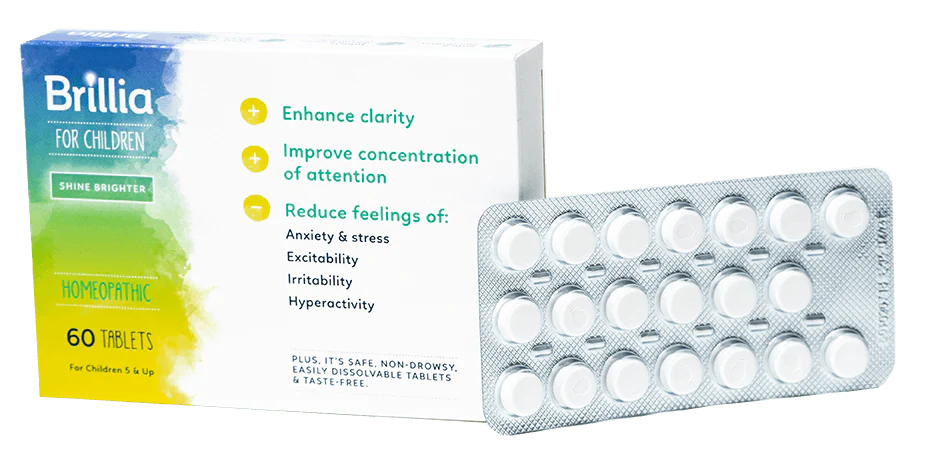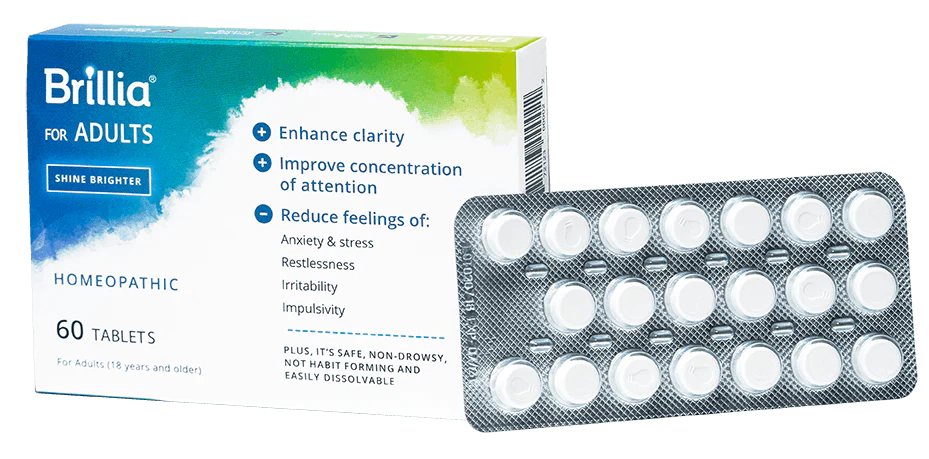Anxiety and ADHD often have overlapping symptoms, including restlessness, irritability, trouble paying attention, insomnia and more. Because of this link, many people with anxiety are misdiagnosed with ADHD, or vice versa, though there is evidence that many individuals struggle with both conditions simultaneously. Explore how ADHD affects anxiety as well as how to ease symptoms of anxiety with a holistic approach.
Q: Is it normal that I have both ADHD and Anxiety?
ANSWER: Studies show that ADHD and anxiety disorders are among the most common psychiatric conditions with a 25 percent comorbidity rate with each other.1 In fact, ADHD without a comorbid disorder is often seen as the exception rather than the rule. There also appears to be an age-related increase in the prevalence of comorbid anxiety and ADHD, making early intervention important to managing symptoms.2
There are various ways in which anxiety presents with ADHD. According to the National Comorbidity Survey Replication (NCS-R), which examined 3,199 adults with ADHD (ages 18-44), they found the following co-occurring anxiety disorders:3
- Any anxiety disorder: 47.1 percent
- Generalized anxiety disorder: 8 percent
- PTSD: 11.9 percent
- Panic disorder: 8.9 percent
- Agoraphobia: 4 percent
- Specific phobia: 22.7 percent
- Social phobia: 29.3 percent
- Obsessive-compulsive disorder: 2.7 percent
Shine Brighter
There are also some studies that show women are more likely to report disorders like anxiety and depression than men with ADHD, including higher rates of severe mental illness and admissions to in-patient psychiatric hospitals in adulthood.4
Q: So, how exactly does ADHD affect my anxiety?
ANSWER: Some people with ADHD have trouble with emotional regulation, causing them to get swept away by an emotion like anxiety quickly.5 They may become so overwhelmed in response to stress that they have more difficulty thinking clearly and coping. While occasional bouts of anxiety do not necessarily mean that the person with ADHD has an anxiety disorder, it can make these momentary experiences incredibly challenging. Even more, some of the stimulant drugs often prescribed for ADHD have been known to contribute to anxiety.
Signs and symptoms of comorbid anxiety and ADHD include:
- Difficulty concentrating or paying attention
- Irritability or feelings of restlessness
- Insomnia
- Social withdrawal
- Device overuse
Q: How to Ease Anxiety Symptoms If You Have ADHD?
ANSWER: Before turning to prescription medications, which have been associated with inducing or worsening anxiety, people with ADHD can explore a number of different tools and practices to ease anxiety symptoms. From cognitive behavioral therapy (CBT) to mindfulness, here are several action steps you can take to start feeling calmer and more grounded:
- Cognitive behavioral therapy: Studies show that CBT, a type of mental health treatment that helps identify and change underlying thought patterns, has improved symptoms of ADHD and comorbid anxiety.6
- Mindfulness and relaxation techniques: In one study of mindfulness intervention, a 20-week mindfulness training program successfully decreased anxiety in ADHD participants.7 Mindfulness can entail such practices as yoga or meditation, or simple walks through nature.
- Exercise: Physical exercise has been shown to help people with ADHD refrain from startling and overreacting by balancing norepinephrine in the brain stem’s arousal center. The Anxiety and Depression Association of America (ADAA) suggests that a 10-minute walk may be just as good as a 45-minute workout for anxiety relief.8
- Limit screen time: Excessive screen use has been linked to anxiety and attention problems.9 Keep track of your screen use to see if you may be overusing.
- Eat well: Poor nutrition can also worsen symptoms of anxiety and ADHD. Aim to eat healthy foods and steer clear of anxiety-inducing culprits like sugar or too much caffeine.
- Get enough sleep: Your brain depends on a solid night’s sleep to re-energize the cells in your brain and regulate your mood. Practice good sleep hygiene to ensure you’re getting enough rest.
If lifestyle changes are not enough to manage your anxiety, Brillia for Adults is another option to consider adding to your daily regimen. A safe and impactful non-prescription medication that is available without an official diagnosis, Brillia helps to reduce symptoms of anxiety and ADHD without harsh chemicals, harmful side effects, or contraindications. This means if you’re already taking medication for anxiety or ADHD, you can add Brillia to your regimen without worry. The medication works best when combined with healthier lifestyle choices, such as eating healthy foods, getting adequate sleep, limiting screen time, and practicing mindfulness and relaxation techniques. Brillia usually takes 2-3 weeks to build up in the system, so it is critical to stay consistent with the daily doses to give the product time to meet your needs while practicing other tools to ease your symptoms. Find out more about how Brillia works.
We’ll share helpful tips, the latest studies and personal experiences.







